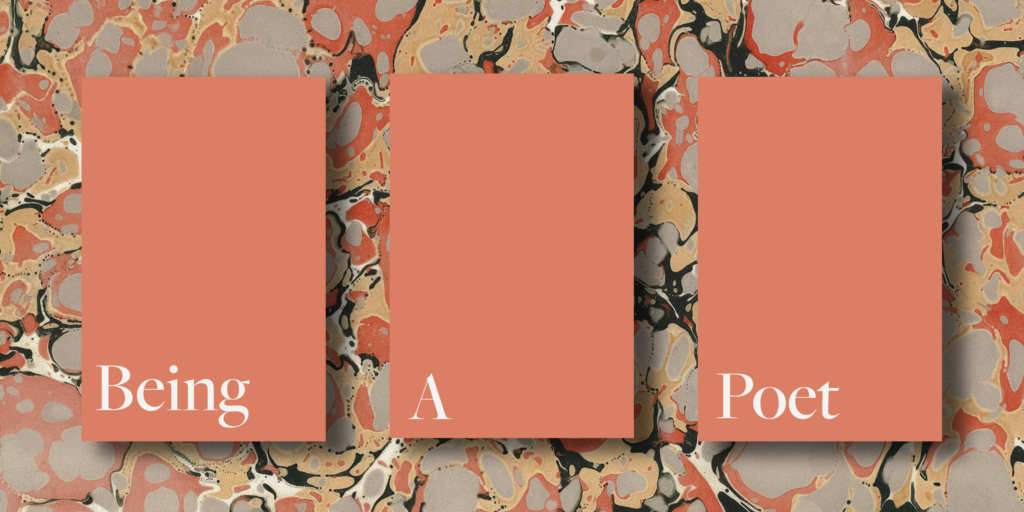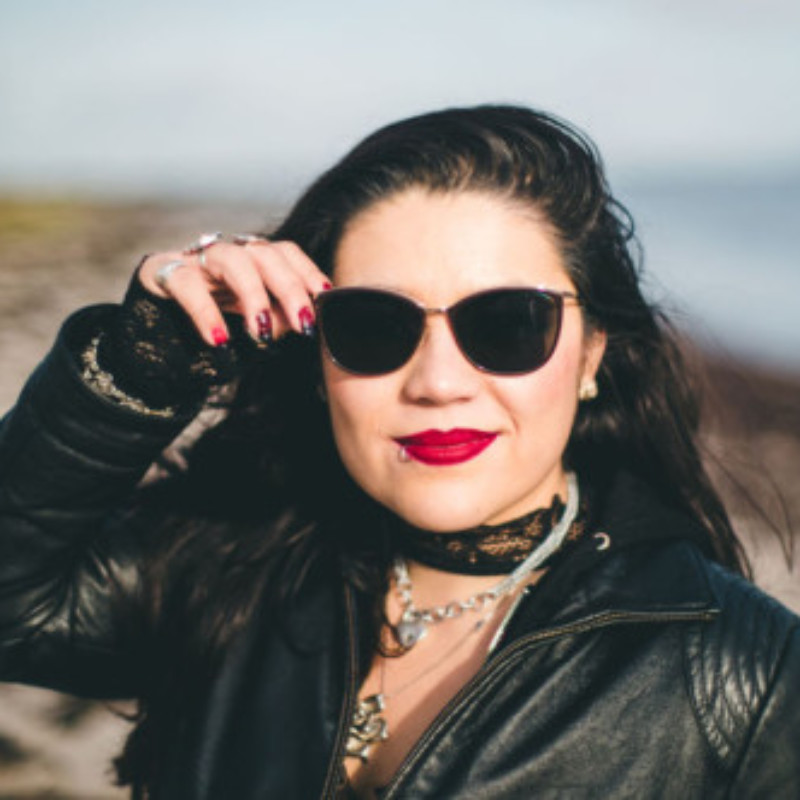In this series, we interview our tutors about poetry and its place in their world. These interviews will cover creative writing tips, excelling in a poetry workshop, building a literary career, and finding your poetic voice. Here’s Elizabeth Torres (Madam Neverstop) on how to write about climate crisis.

How do you see poetry’s role in raising awareness about environmental justice and ecological grief?
Poetry taught me, at a very early age, how to speak when there were no safe places to speak. As a political refugee from Colombia, I learned early that poetry is not just literature – it’s a survival tool, a mirror that reflects the unspeakable, the silenced histories of a people. It allowed me to testify, to process, and to articulate what could not be said out loud. In the context of environmental justice, it makes sense then that poetry becomes a vessel for complex truths: about displacement, about extractive violence, about our broken relationships with land and memory. But it also becomes an opportunity to evolve our connection with our planet and act accordingly. Now that the climate crisis is so deeply intertwined with our daily lives and with histories of colonialism and dispossession, poetry remains vital – not only to name these intersections, but to offer a space for grief, transformation, and solidarity.
In what ways has your writing practice evolved to incorporate multimedia elements like sound, video, or visual art?
I work across disciplines because memory itself is not linear or singular… I see it as a circular process – it’s sensory, layered, often fractured. My writing has always existed alongside sound, image, gesture. I place great importance in the sound of a body of work, and in previous Poetry School courses have received great feedback from students who have explored these circular auditive experiments with me. I create sonic soundscapes using field recordings, analog and electronic synthesizers, and archival voice materials – weaving them into installations that include video, thread, drawing, and poetic text. The work becomes immersive, often ritualistic, creating a space where ecological memory and personal history can coexist. I’m interested in how we can recompose the archive – not as something static or institutional, but as a living, breathing form that evolves through each encounter. This is how poetry lives in my work: through multiplicity, vibration, and relationality.
Can you share an example of how transgenerational storytelling influences your approach to eco-poetics?
Storytelling becomes a tool for remembrance and for imagining futures rooted in justice… and in healing. Shall we say forgiveness? or at least acceptance. Rituals of reclaiming and letting go. Because I couldn’t return to Colombia for much of my life, transgenerational storytelling has always been mediated through distance – through phone calls, silences, dreams, memories retold across borders. Yet in recent years, I’ve seen how Colombia has begun to reckon, at least symbolically, with the damage inflicted upon its displaced peoples and indigenous communities. The current government’s recognition of traditional storytelling as a cultural and ecological inheritance is a step toward healing – not only for those communities, but for all of us navigating fractured ancestries. In my ecopoetic practice, I’m not trying to reconstruct a romanticised past – I’m listening to the stories that persist despite rupture, and finding ways to amplify them through sound, movement, and collective practice. I’m deeply inspired by the migrant experiences I’ve witnessed and been a part of as an adult, because through writing I was able to reclaim my fragmented identity and truly accept the multiculturalism of my story.
How do you balance the urgency of climate crisis themes with creating space for reflection or ritual in your work?
Urgency doesn’t always mean speed. This is why circular processes are important. When we rush to produce in a capitalist framework, we exhaust ourselves and burn out, and along the way we extinguish all the natural resources around us. It is the same with ideas. I believe in the process of recycling, reusing, returning to look at a piece of work from different angles, digging deeper, connecting wholeheartedly until it has given all its secrets and fruits. For me, the most profound ecological work begins in stillness – in listening. The climate crisis demands action, but action without reflection risks replicating the same extractive logic we’re trying to transform. In my practice, ritual becomes a methodology. It allows grief to be witnessed, transformation to be embodied. Whether through soundwalks, gesture-based performance, or collaborative installations, I create spaces where urgency can be metabolised – where the emotional weight of crisis is held communally, not just intellectually. Reflection through movement, repetition, and action. It is necessary for activating relational, ethical responses.
What challenges or opportunities have you encountered when translating ecological memory into multimedia forms?
One challenge is ethical: how do we translate memory – especially collective, intergenerational memory – without appropriating, flattening, or aestheticising trauma? But this is also where the opportunity lies. Multimedia allows for a layered, non-linear expression of ecological experience. It opens portals. It allows for intimate, personal perspectives. When it comes to environmental perspectives, guilt won’t get us far at all, but an inner understanding of what we can offer to the planet might be a much more positive way to get started. With sound, we can evoke places and relationships lost to displacement, for example. Extinguished places, species, feelings. With video, we can re-narrate myth and memory across timelines. With thread and object, we can materialise care. I often use lo-fi technologies and community-sourced materials to invite participation and disconnection from the digital desperation. Think of it this way: A poem can become the physical space that shelters us while we tune in and recharge, and be activated.
How do theoretical frameworks like affect theory or environmental criticism shape the way you create and present eco-poetry?
Theory is essential to my process, but it’s not something I wear on the surface of the work. It informs the architecture, of course. Thinkers like Sara Ahmed, Donna Haraway, and Tom Bristow offer tools for understanding how emotion, memory, and more-than-human relationships circulate through poetics. I work with Bristow’s Living Lexicon and Capra’s systems thinking to shape each phase of my courses – writing, sounding, visualising, performing – as ecological practices in themselves. Affect theory reminds us that knowledge isn’t only cognitive; it’s embodied, sensorial, and relational. So in my work, theory becomes practice: a map toward deeper listening, deeper witnessing, and more accountable creation. This comes from my performing arts background. We get out of the pages of literature and into the ecology of memory, of artistic research, of embodying knowledge with all our senses so that theory and practice are felt, experienced.
Elizabeth is running her online course Ecology of Memory: Multimedia Transgenerational Ecopoetics with us this Autumn, starting 8 October. To find out more & secure your place please visit the course page here.

Elizabeth Torres (b. 1987, Bogotá) is a Colombian-American poet, translator, and interdisciplinary artist working across writing, sound, video, textile, and performance. Raised between Colombia and the United States as a political refugee, her work engages with themes of displacement, ecological grief, intergenerational memory, and cultural survivance. She is the author of over twenty books of poetry published internationally, and recipient of the 2022 Ambroggio Prize from the Academy of American Poets for La Lotería: Sorteo Nocturno / The Lottery: Nocturnal Sweepstakes. Her immersive, multimedia installations often integrate analog and electronic sound, archival materials, and ritual practices that foreground BIPOC, LGBTQIA+, and neurodivergent experience within the context of environmental justice.
Based in Denmark since 2014, Torres is the founder and director of the Poetic Phonotheque, an international archive of multilingual, multimedia poetry; director of Red Door Magazine and Gallery; and host of the Red Transmissions podcast. She holds an MFA in Writing for the Performing Arts from the Danish National School of Performing Arts, and her work has been featured in over 30 countries. Torres is also a Listener Poet for The Good Listening Project, where she composes poetry in response to narratives from healthcare workers, deepening her ongoing exploration of attentive poetics and collective memory.
Most inspirational and inspiring will sign up for the autumn coursejan